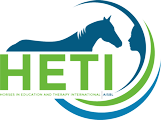Prof. Selcuk Akpinar is presently employed at Nevsehir Haci Bektas Veli University within the Faculty of Sports Sciences, serving as a dean. His academic journey began with the completion of his bachelor’s degree with honors (attaining the first rank position) at Hatay Mustafa Kemal University.
Initially designated as a Physical Education Teacher by the Ministry of Education, he fulfilled this role for a duration of two years. Pursuing further education, he followed a master's degree at Bolu Abant Izzet Baysal University, where he transitioned into a research assistant position. Subsequently, he pursued his doctoral studies at Middle East Technical University, with a focus on motor learning and control studies. During this time, he undertook a visiting scholar role at Penn State University in the United States for a year and a half, followed by a six-month post-doctoral position. At Penn State, he contributed to research in a motor control laboratory, investigating the impact of sports training participation on motor lateralization. Upon completing his doctorate, he relocated to Nevsehir and was promoted to the position of Associate Professor by the Higher Education Council of Turkey in December 2017. Further recognition followed, as Nevsehir Haci Bektas Veli University elevated him to the rank of full professor in February 2023. His involvement in Equine Assisted Activities dates back to 2013, with active participation in Erasmus+ Projects in this field and ongoing research endeavors. Additionally, he serves as the assistant principal of the Equine-Horseback Riding Application and Research Center at Nevsehir Haci Bektas Veli University. Prof. Akpinar’s scholarly contributions extend to respected international journals, particularly in the realm of equine-assisted activities. Prof. Akpinar is primarily involved in equine-assisted learning and adaptive riding practices.
He has cultivated numerous international collaborations and maintains a diverse network of colleagues worldwide. His primary research interests encompass motor lateralization in sports and equine-assisted activities, arm selection, motor learning and pedagogy, and body composition.
